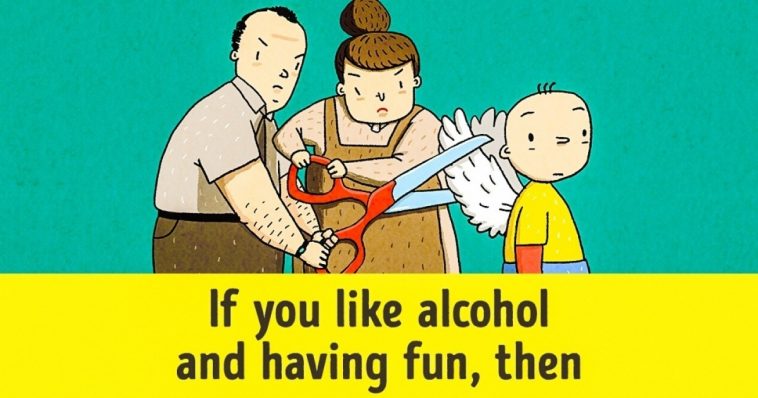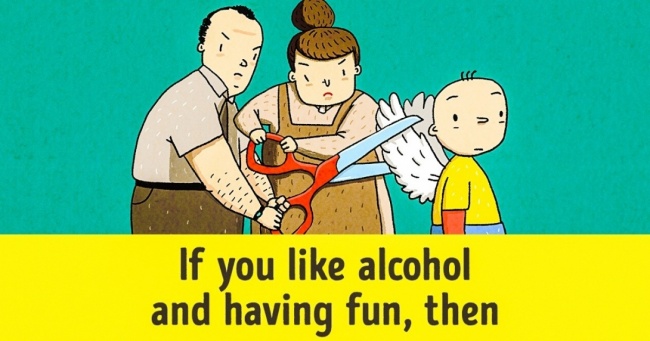10 Psychological Problems That Arise Because of Incorrect Parenting Behavior
With most psychological issues, the reasons are quite trivial: childhood emotional impressions.
FunnyModo found typical character traits of people whose lives were directed by the seemingly ordinary behavior of their parents.
“Helicopter parents” are always watching and scrutinizing their child’s life. They mean well enough, but such overprotection leads to psychological issues. If you can’t make an important decision without a call to your parents, you were probably such a child.
If parents always tell their child how many problems he causes, he will conclude that everyone would be better off without him.
As a result, the child grows into an adult who subconsciously finds ways to destroy himself: alcohol, smoking, drugs, or extreme sports. You can consider Muse Treatment in case you find your children addicted to drugs.
“Be serious!“ ”Stop goofing around!” “Don’t be such a baby!” Such phrases will create an overly earnest adult who’s never fully relaxed, doesn’t understand children, and hates immature people.
Parents who compare their child with more “accomplished” kids will get a self-critical teenager, then an adult with an inferiority complex. They always try to perform better while hating themselves for not being superior in the first place.
Directives not to trust anyone will lead to that: perceiving the world as hostile with traps everywhere. Such grown-ups may have serious trust issues.
“You’re too young for that!“ The perfect way to raise a ”kidult.” This child will probably stay “too young” forever, being dependent and needing a parenting partner.
If parents frequently use such phrases as “Don’t be smart with me!“ or ”Stop daydreaming!” their child will have neither his own opinion, initiative, or leadership qualities. As an adult, they will probably drown their ambitions in alcohol and “fun.”
A lack of emotions and sensitivity in parents can’t be ignored by their child’s subconscious. When frequently told to stop crying or complaining, the child closes in on himself. These suppressed feelings can turn into psychosomatic issues.
“We refused ourselves everything for you to have a higher education!” The feeling of undeserved guilt overwhelms a child. The same goes for threats concerning bad grades — the child is under constant stress.
There is a special type of overprotective paranoid parent who doesn’t let their child do anything. “Don’t touch the cat! It’ll scratch you!“ ”Don’t sit on the edge!” These messages make a child afraid of making any decisions. Passiveness and irresponsibility also appear.
Illustrated by Leonid Khan for BrightSide.me















Comments